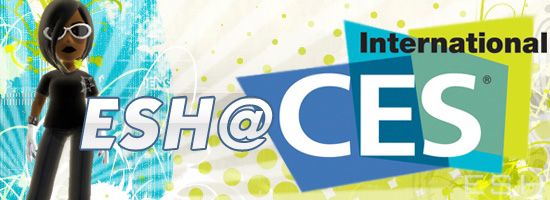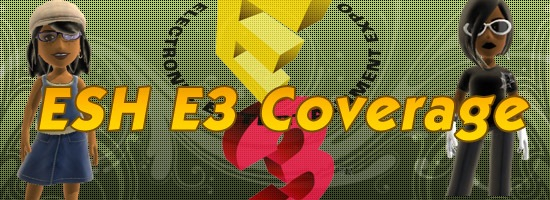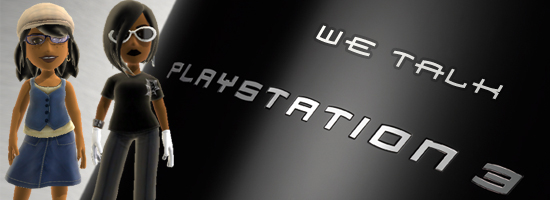For video game players, the competition among the three game console manufacturers must seem like a Dead or Alive tournament. There's always a winner and a loser, but someone else is always lined up for another bout with the winner.
Few tears were spilled when the No. 4 console maker, Sega, dropped out of the market a few years ago. But can you imagine if, in a year from now, there were only TWO console game makers?
Not only COULD it happen, but we're going to tell you why it WILL happen.
 Can Video Games Bring Down a Multinational Corporation?
Can Video Games Bring Down a Multinational Corporation?
Sony has a book value of $27 billion. It has nearly $9 billion in cash. Sony's not going anywhere. Or is it?
Sony is looking at a potential for demise it has never faced before. With the failure of its TV and music electronics businesses and its up-and-down movie business, it has relied more and more on the video game business to keep profits up.
But now even its video game business can't save the company. In fact, it's the video game business that could put the whole company right down the toilet.
Here's a story of a company in trouble. Sure, you think you could help it by buying a new PS3 at the end of the year. But purchasing a PS3 this year could be the very thing that pushes Sony over the edge.
The Seeds Are Sown
Sony's troubles didn't just begin this year, but we all started to realize the wheels were falling off the train when Sony started delaying the release of the new PlayStation 3. The first excuse Sony made was that licensing issues were causing the delay from Spring 2006 to November 2006.
Around the same time Sony was putting off the release, analysts released a disturbing story about the disparity in the cost of raw materials for the PS3, compared with the estimated purchase price.
Analysts had predicted the PS3 cost would be in line with the cost of the Microsoft XBox 360 consoles.
In a February story for CNet, it was estimated that the total cost of components for the PS3 would be in the neighborhood of $725 to $905 -- and that was before it was rumored that Sony would have to put PS2 components in the box because the new chip lacked the ability to emulate the earlier PSOne and PS2 games.
The CNet story said, "The materials price estimates do not include marketing, software development, advertising or other costs, which will push Sony's total cost per console even higher."
That there is such a disparity between the price of materials and the suggested retail price for a new console is not unusual because most new consoles are sold as loss-leaders, with the game maker making up the difference with the high margin of profit they get by selling games for the console.
In contrast, the materials cost for the XBox 360 is estimated at only $501, and should continue to drop as the console ages. While Sony pays $200 to $300 for each raw Blu-ray drive, Microsoft pays only $20 for the simpler DVD drives.
The Truth Hits Home
With such estimates for raw materials, video game fans should have known that the new machine would need to cost a lot more. But a huge audience that was prepared to cheer the announced price of the PS3 instead sat in stunned silence when the suggested retail price was announced at the E3 conference: $499 for the basic system and $599 for the premium one.
Of course, the single most costly item in the PS3 is the Blu-ray drive. Analysts originally figured Blu-ray would add at least another $200 or so to the price of the machine, but that figure has gone way up.
First, there's more than just the mechanical equipment to figure in. Sony must also pay for all the codecs that must be licensed.
Second, the slow adoption of high density DVD technology will keep prices high for years.
Finally, all manufacturers of the blue lasers that are required for high density DVDs are having problems getting up to speed in creating the machines. This will result in low yields, further driving up the price of the drives.
Sony Computer Entertainment president Ken Kutaragi was not ambivalent about the pricing of the console -- he kept saying it was a premium machine, sold at a premium price. Want a PS3? Work a little harder!
"Our ideal," Kutaragi said, "is for consumers to think to themselves, 'OK, I'll work more hours and buy it.' We want people to feel that they want it, no matter what."
But the consumer reaction was swift -- and harsh. Even the Official Playstation Magazine had a bold cover headline that asked, "Is It Worth $600?"
In June, a month after Sony announced its price points for the PS3, analysts at Merrill Lynch estimated Sony would lose more than $1 billion in the console's first year of existence. By comparison, Sony lost only $458 million during the first year the PS2 was available. The company followed that with two strong years of profit -- $759 million in Year 2 and $1.3 billion in Year 3.
But Merrill Lynch warned that this generation of consoles was not like the last. Microsoft beat Sony for the next generation consoles by a year and a price reduction for the XBox could result in additional losses for Sony -- $730 million in Year 2 and $457 million in Year 3. That's nearly $2 billion in losses over three years.
The Cost of Doing Business
Of course, analysts questioning Sony's moves is nothing new. More than 10 years ago, just six weeks before Sony introduced the original PlayStation, the head of the project team quit amid rumors of difficulties in getting the console out on time.
Analysts at the time believed Sony could lose as much as $200 million on the project in the first year.
Sony's answer at the time was to require retailers to bundle the packages with one or two games, which still left Sony underwater, but not as much as it would have been.
This, of course, begs the question, "Will Sony pull the same thing this year?" It makes sense, especially considering that Sony will be charging a premium price for its games (above $59 and below $99, according to most sources).
The bad news for Sony this year isn't restricted to video game competition. The company is also liable for a large share in the laptop battery recalls being conducted by Dell and Apple. Nearly 6 million batteries have been recalled in the past two months -- all of them manufactured by Sony.
The battery fiasco alone could cost Sony as much as $500 million.
"The most important thing for Sony is maintaining the No. 1 quality, whatever the category or area," Sony Marketing (Japan) Inc. Senior Vice President Kiyoshi Shikano told MarketWatch this month. "So in that sense, unfortunately, the recent happenings have caused some small damage for the business."
In addition, Sony is far behind its competitors in the fast growing LCD flat-screen TV market and has lost its decades-long edge in portable music devices to Apple Computer's iPod players.
Sony is also likely to face a fight in Europe over its partnership with Betlesmann AG. A European court ruled in July that the European Commission was wrong to approve the venture. The court decision means Sony and Bertelsmann will have to re-apply to win European Commission approval for their venture.
At the movie box office, Sony has had great success with its Spiderman franchise, but must wait until May 2007 for the next installment to arrive. The company's biggest film this year has been Will Farrell's Talladega Nights: The Ballad of Ricky Bobby, which has made $145 million thus far, but lags far behind Disney's hit sequel for Pirates of the Caribbean, which has already made more than $1 billion worldwide this summer.
The Market Leader Goes Into the Cellar
Although the PS2 captured more than a 70 percent share of the previous generation of console sales, it is entering the next generation at a distant third, with Microsoft predicted to sell 10 million XBox 360 consoles and Nintendo selling 4 million of its new Wii consoles, while Sony will be able to push out only 2 million consoles to consumers by the end of this year.
That fact alone has analysts betting that Sony will introduce price cuts quickly. But price cuts, in combination with the losses Sony takes on each machine it sells, are a double-edged sword.
"By reducing the price, it appears that Sony may have prolonged its recouping period of initial investments on the PS3 by a few years," John Yang, a Tokyo-based analyst with Standard & Poor's, told the Wall Street Journal today. According to the Wall Street Journal article, Yang estimates the PlayStation 3 will be unprofitable for at least three years.
The Journal story brings up another point that may draw the most fear in the ranks of Sony -- the PlayStation will no longer dominate game developers. When the original PlayStation and PS2 were introduced, Sony had an impressive lineup of developers who made games exclusively for its consoles. That won't be the case with the PS3.
"We don't want the PlayStation 3 to be the overwhelming loser, so we want to support them," Michihiro Sasaki, senior vice president of Square Enix, told the Wall Street Journal. "But we don't want them to be the overwhelming winner either, so we can't support them too much."
So the price cuts have already begun. On Friday Sony announced a price cut for Japanese buyers (about $410 in U.S. dollars for the low-end version), there was no indication that such a price cut would be given to American customers.
In addition to lowering the price of the low-end model, Sony added an HDMI port to the machine, which further increases the price of raw materials. Sony will undoubtedly be losing even more money than ever before.
Do the Math
As a result, Sony is forecasting an $862 million operating loss for the current fiscal year. But that's going to seem like chicken feed, compared to the loss it's liable to see in 2007.
How much will Sony lose in the next 12 months? Let's count it up.
Sony plans on making 6 million PS3 units before April. Let's say that they sell every one of them at full retail price. With what we know about the materials price -- particularly the price of Blu-Ray players -- let's say that they will lose only $300 for every PS3 they sell.
That's the same amount that analysts figure the PS3 will cost the company over the first three years. Why the disparity?
The analysts are counting on Sony making up the sales of machines with the sales of video games. But it's not going to be as easy for Sony this time. Few game developers are making games exclusively for the PS3.
Also, Sony has already said that games would be at least $10 more than the games for the XBox 360 and at least $20 more than the games for the Nintendo Wii. With everything being the same, would you pay $10 or $20 more for the same game that you could play on your XBox 360 or Wii?
In addition, Sony will be nickle-and-diming you at every opportunity -- particularly with the HDMI cable, which will likely cost between $99 and $129. (That's surely why they added an HDMI port for the low-end PS3. They'll make their money back on the cable for it.)
Surely the discounts will come quickly, but they'll all be a drag on Sony's bottom line. Let's say Sony loses $400 on every box they sell. Here are the numbers:
That really starts taking a mammoth chunk out of Sony's cash. Add to that the half-billion dollars of free laptop batteries they've got to give out and the losses start approaching $3 billion.
But a company like Sony can afford to lose $4 billion, can't it? Once upon a time, that might have been true, but Sony is a much different company today than it was just a few years ago.
The Japanese people who owned shares in Sony could see the value in building for the future. But, with its purchase of Columbia Studios and Columbia Records, Sony has become much more of a multinational company. Today, for the first time in its history, less than half of the company is owned by Japanese investors. Investors in the West demand more short-term benefits.
Devoting nearly half of its cash reserves to losses in the video game and computing sectors, with no guarantee of future profits for another two years, could send the company's stock into a tailspin, once its investors realize the full measure of the grave situation for the company.
In such a situation, Sony could start selling off large chunks of the company. But even that would come at a large cost. For example, selling off the movie division would result in the loss of the Spiderman franchise for the PlayStation. Without an exclusive there, Microsoft and Nintendo would gain the edge in game sales, since their games cost less than Sony's.
Sony has become a minor player in the music player and TV industries, so they wouldn't be able to make much money off selling their stake in the aging Walkman and Trinitron franchises.
When things are all said and done, the most valuable piece of the pie at Sony is its video game division. They could very well put it up for sale. And who could be the potential buyer?
Microsoft.
That's right. I said it. Just think about it.
Who could benefit the most by purchasing Sony's video game division?
Microsoft.
You might say there's no way the U.S. government would allow such a thing. Anti-trust, you say.
Just remember who's running the government. A Microsoft takeover would be treated with the same kid gloves that created DaimlerChrysler.
Who knows? This time next year you could be playing games on a PlayStation 360.
Want a PS3? Work a Little Harder!
So you want to save Sony. What can you do?
Well, as Sony's Kutaragi says, you need to work a little harder and make a little more money.
Stop complaining that the PS3 costs $600. It doesn't. In order to cut down on its losses, Sony is liable to do the same thing to consumers that it did 11 years ago at the original Playstation launch -- it'll require that you buy two games in order to get a machine. That'll boost the price for you to around $725 or so.
But there's more! Want an HDMI cable? That'll be another $100 to $125. Now we're at $850 or so. You've got a Blu-ray player, so you'll want a few Blu-ray movies -- Sony titles only, of course. Buy six of them while you're at it! At an average list price of $25 each, we're talking another $150. That pushes our total price to an even $1,000.
That'll go a long way to saving Sony.
Now who's going to save you?

Few tears were spilled when the No. 4 console maker, Sega, dropped out of the market a few years ago. But can you imagine if, in a year from now, there were only TWO console game makers?
Not only COULD it happen, but we're going to tell you why it WILL happen.
 Can Video Games Bring Down a Multinational Corporation?
Can Video Games Bring Down a Multinational Corporation?Sony has a book value of $27 billion. It has nearly $9 billion in cash. Sony's not going anywhere. Or is it?
Sony is looking at a potential for demise it has never faced before. With the failure of its TV and music electronics businesses and its up-and-down movie business, it has relied more and more on the video game business to keep profits up.
But now even its video game business can't save the company. In fact, it's the video game business that could put the whole company right down the toilet.
Here's a story of a company in trouble. Sure, you think you could help it by buying a new PS3 at the end of the year. But purchasing a PS3 this year could be the very thing that pushes Sony over the edge.
The Seeds Are Sown
Sony's troubles didn't just begin this year, but we all started to realize the wheels were falling off the train when Sony started delaying the release of the new PlayStation 3. The first excuse Sony made was that licensing issues were causing the delay from Spring 2006 to November 2006.
Around the same time Sony was putting off the release, analysts released a disturbing story about the disparity in the cost of raw materials for the PS3, compared with the estimated purchase price.
Analysts had predicted the PS3 cost would be in line with the cost of the Microsoft XBox 360 consoles.
In a February story for CNet, it was estimated that the total cost of components for the PS3 would be in the neighborhood of $725 to $905 -- and that was before it was rumored that Sony would have to put PS2 components in the box because the new chip lacked the ability to emulate the earlier PSOne and PS2 games.
The CNet story said, "The materials price estimates do not include marketing, software development, advertising or other costs, which will push Sony's total cost per console even higher."
That there is such a disparity between the price of materials and the suggested retail price for a new console is not unusual because most new consoles are sold as loss-leaders, with the game maker making up the difference with the high margin of profit they get by selling games for the console.
In contrast, the materials cost for the XBox 360 is estimated at only $501, and should continue to drop as the console ages. While Sony pays $200 to $300 for each raw Blu-ray drive, Microsoft pays only $20 for the simpler DVD drives.
The Truth Hits Home
With such estimates for raw materials, video game fans should have known that the new machine would need to cost a lot more. But a huge audience that was prepared to cheer the announced price of the PS3 instead sat in stunned silence when the suggested retail price was announced at the E3 conference: $499 for the basic system and $599 for the premium one.
Of course, the single most costly item in the PS3 is the Blu-ray drive. Analysts originally figured Blu-ray would add at least another $200 or so to the price of the machine, but that figure has gone way up.
First, there's more than just the mechanical equipment to figure in. Sony must also pay for all the codecs that must be licensed.
Second, the slow adoption of high density DVD technology will keep prices high for years.
Finally, all manufacturers of the blue lasers that are required for high density DVDs are having problems getting up to speed in creating the machines. This will result in low yields, further driving up the price of the drives.
Sony Computer Entertainment president Ken Kutaragi was not ambivalent about the pricing of the console -- he kept saying it was a premium machine, sold at a premium price. Want a PS3? Work a little harder!
"Our ideal," Kutaragi said, "is for consumers to think to themselves, 'OK, I'll work more hours and buy it.' We want people to feel that they want it, no matter what."
But the consumer reaction was swift -- and harsh. Even the Official Playstation Magazine had a bold cover headline that asked, "Is It Worth $600?"
In June, a month after Sony announced its price points for the PS3, analysts at Merrill Lynch estimated Sony would lose more than $1 billion in the console's first year of existence. By comparison, Sony lost only $458 million during the first year the PS2 was available. The company followed that with two strong years of profit -- $759 million in Year 2 and $1.3 billion in Year 3.
But Merrill Lynch warned that this generation of consoles was not like the last. Microsoft beat Sony for the next generation consoles by a year and a price reduction for the XBox could result in additional losses for Sony -- $730 million in Year 2 and $457 million in Year 3. That's nearly $2 billion in losses over three years.
The Cost of Doing Business
Of course, analysts questioning Sony's moves is nothing new. More than 10 years ago, just six weeks before Sony introduced the original PlayStation, the head of the project team quit amid rumors of difficulties in getting the console out on time.
Analysts at the time believed Sony could lose as much as $200 million on the project in the first year.
Sony's answer at the time was to require retailers to bundle the packages with one or two games, which still left Sony underwater, but not as much as it would have been.
This, of course, begs the question, "Will Sony pull the same thing this year?" It makes sense, especially considering that Sony will be charging a premium price for its games (above $59 and below $99, according to most sources).
The bad news for Sony this year isn't restricted to video game competition. The company is also liable for a large share in the laptop battery recalls being conducted by Dell and Apple. Nearly 6 million batteries have been recalled in the past two months -- all of them manufactured by Sony.
The battery fiasco alone could cost Sony as much as $500 million.
"The most important thing for Sony is maintaining the No. 1 quality, whatever the category or area," Sony Marketing (Japan) Inc. Senior Vice President Kiyoshi Shikano told MarketWatch this month. "So in that sense, unfortunately, the recent happenings have caused some small damage for the business."
In addition, Sony is far behind its competitors in the fast growing LCD flat-screen TV market and has lost its decades-long edge in portable music devices to Apple Computer's iPod players.
Sony is also likely to face a fight in Europe over its partnership with Betlesmann AG. A European court ruled in July that the European Commission was wrong to approve the venture. The court decision means Sony and Bertelsmann will have to re-apply to win European Commission approval for their venture.
At the movie box office, Sony has had great success with its Spiderman franchise, but must wait until May 2007 for the next installment to arrive. The company's biggest film this year has been Will Farrell's Talladega Nights: The Ballad of Ricky Bobby, which has made $145 million thus far, but lags far behind Disney's hit sequel for Pirates of the Caribbean, which has already made more than $1 billion worldwide this summer.
The Market Leader Goes Into the Cellar
Although the PS2 captured more than a 70 percent share of the previous generation of console sales, it is entering the next generation at a distant third, with Microsoft predicted to sell 10 million XBox 360 consoles and Nintendo selling 4 million of its new Wii consoles, while Sony will be able to push out only 2 million consoles to consumers by the end of this year.
That fact alone has analysts betting that Sony will introduce price cuts quickly. But price cuts, in combination with the losses Sony takes on each machine it sells, are a double-edged sword.
"By reducing the price, it appears that Sony may have prolonged its recouping period of initial investments on the PS3 by a few years," John Yang, a Tokyo-based analyst with Standard & Poor's, told the Wall Street Journal today. According to the Wall Street Journal article, Yang estimates the PlayStation 3 will be unprofitable for at least three years.
The Journal story brings up another point that may draw the most fear in the ranks of Sony -- the PlayStation will no longer dominate game developers. When the original PlayStation and PS2 were introduced, Sony had an impressive lineup of developers who made games exclusively for its consoles. That won't be the case with the PS3.
"We don't want the PlayStation 3 to be the overwhelming loser, so we want to support them," Michihiro Sasaki, senior vice president of Square Enix, told the Wall Street Journal. "But we don't want them to be the overwhelming winner either, so we can't support them too much."
So the price cuts have already begun. On Friday Sony announced a price cut for Japanese buyers (about $410 in U.S. dollars for the low-end version), there was no indication that such a price cut would be given to American customers.
In addition to lowering the price of the low-end model, Sony added an HDMI port to the machine, which further increases the price of raw materials. Sony will undoubtedly be losing even more money than ever before.
Do the Math
As a result, Sony is forecasting an $862 million operating loss for the current fiscal year. But that's going to seem like chicken feed, compared to the loss it's liable to see in 2007.
How much will Sony lose in the next 12 months? Let's count it up.
Sony plans on making 6 million PS3 units before April. Let's say that they sell every one of them at full retail price. With what we know about the materials price -- particularly the price of Blu-Ray players -- let's say that they will lose only $300 for every PS3 they sell.
6,000,000 x
$300
= $1.8 billion
That's the same amount that analysts figure the PS3 will cost the company over the first three years. Why the disparity?
The analysts are counting on Sony making up the sales of machines with the sales of video games. But it's not going to be as easy for Sony this time. Few game developers are making games exclusively for the PS3.
Also, Sony has already said that games would be at least $10 more than the games for the XBox 360 and at least $20 more than the games for the Nintendo Wii. With everything being the same, would you pay $10 or $20 more for the same game that you could play on your XBox 360 or Wii?
In addition, Sony will be nickle-and-diming you at every opportunity -- particularly with the HDMI cable, which will likely cost between $99 and $129. (That's surely why they added an HDMI port for the low-end PS3. They'll make their money back on the cable for it.)
Surely the discounts will come quickly, but they'll all be a drag on Sony's bottom line. Let's say Sony loses $400 on every box they sell. Here are the numbers:
6,000,000 x
$400
= $2.4 billion
That really starts taking a mammoth chunk out of Sony's cash. Add to that the half-billion dollars of free laptop batteries they've got to give out and the losses start approaching $3 billion.
But a company like Sony can afford to lose $4 billion, can't it? Once upon a time, that might have been true, but Sony is a much different company today than it was just a few years ago.
The Japanese people who owned shares in Sony could see the value in building for the future. But, with its purchase of Columbia Studios and Columbia Records, Sony has become much more of a multinational company. Today, for the first time in its history, less than half of the company is owned by Japanese investors. Investors in the West demand more short-term benefits.
Devoting nearly half of its cash reserves to losses in the video game and computing sectors, with no guarantee of future profits for another two years, could send the company's stock into a tailspin, once its investors realize the full measure of the grave situation for the company.
In such a situation, Sony could start selling off large chunks of the company. But even that would come at a large cost. For example, selling off the movie division would result in the loss of the Spiderman franchise for the PlayStation. Without an exclusive there, Microsoft and Nintendo would gain the edge in game sales, since their games cost less than Sony's.
Sony has become a minor player in the music player and TV industries, so they wouldn't be able to make much money off selling their stake in the aging Walkman and Trinitron franchises.
When things are all said and done, the most valuable piece of the pie at Sony is its video game division. They could very well put it up for sale. And who could be the potential buyer?
Microsoft.
That's right. I said it. Just think about it.
Who could benefit the most by purchasing Sony's video game division?
Microsoft.
You might say there's no way the U.S. government would allow such a thing. Anti-trust, you say.
Just remember who's running the government. A Microsoft takeover would be treated with the same kid gloves that created DaimlerChrysler.
Who knows? This time next year you could be playing games on a PlayStation 360.
Want a PS3? Work a Little Harder!
So you want to save Sony. What can you do?
Well, as Sony's Kutaragi says, you need to work a little harder and make a little more money.
Stop complaining that the PS3 costs $600. It doesn't. In order to cut down on its losses, Sony is liable to do the same thing to consumers that it did 11 years ago at the original Playstation launch -- it'll require that you buy two games in order to get a machine. That'll boost the price for you to around $725 or so.
But there's more! Want an HDMI cable? That'll be another $100 to $125. Now we're at $850 or so. You've got a Blu-ray player, so you'll want a few Blu-ray movies -- Sony titles only, of course. Buy six of them while you're at it! At an average list price of $25 each, we're talking another $150. That pushes our total price to an even $1,000.
That'll go a long way to saving Sony.
Now who's going to save you?

Labels: Advertising, evermore, Games, Microsoft, Nintendo, PlayStation, PS2, PS3, Sega, Sony, Videogames, Wii, XBox-360



























« Home